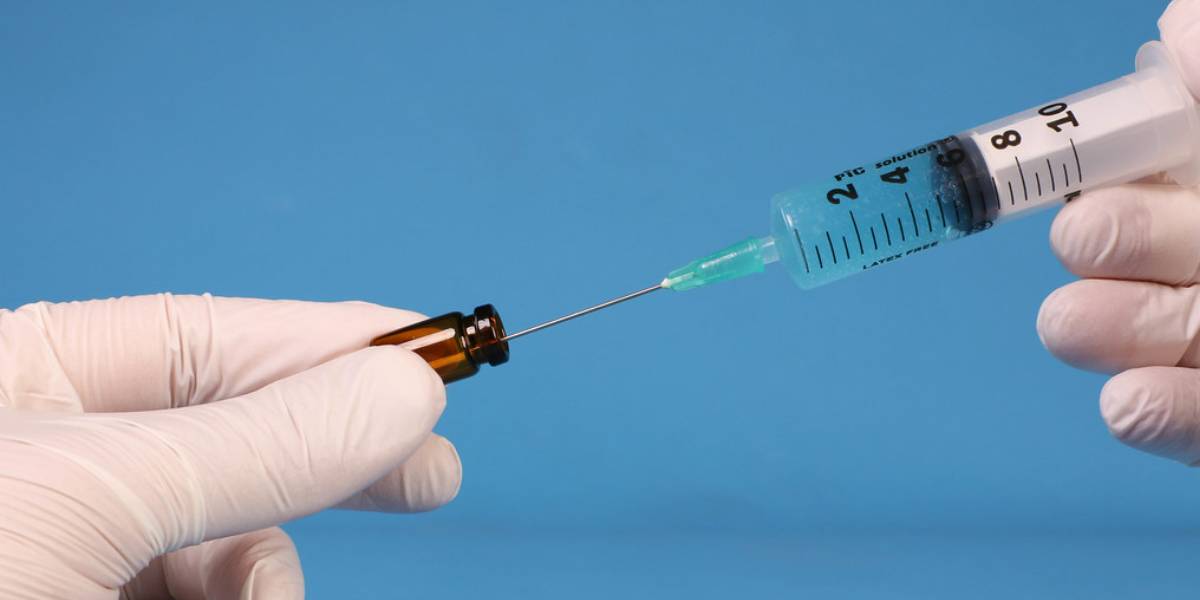The findings of the phase-III clinical trial, which involved 303 candidates aged 25-40 years, were published in Andrology journal last month.

As part of the study, 303 healthy, sexually active, married men who came to the family planning clinic for a vasectomy were identified. (Creative Commons)
Given the continuously growing global population, there is a pressing requirement to create contemporary approaches to male contraception in order to manage the growth.
Despite the considerable effectiveness of vasectomy as a contraceptive option, several significant drawbacks associated with this method necessitate the advancement of more enhanced techniques.
The perfect method for male contraception should feature a minimally-invasive drug delivery system involving a single injection, which can provide long-lasting effectiveness with minimal side effects and offer the possibility of reversal.
To achieve this goal, the Indian Council of Medical Research (ICMR) has completed its clinical trial on the world’s first injectable male contraceptive — “Reversible Inhibition of Sperm under Guidance” (RISUG) — designed as an injectable and reversible male contraceptive method.
The study has now proven that this novel male contraceptive approach is safe and highly effective without any serious side effects.
RISUG is an innovative male contraceptive technique that has been in development for several years. The development of RISUG dates back to the 1970s when Dr Sujoy K. Guha, an Indian scientist, began researching a reversible male contraceptive method.
Dr Guha and his team developed a polymer gel called styrene maleic anhydride (SMA), which is injected into the vas deferens, where it acts as a contraceptive by immobilising and damaging sperm.
Clinical trials and research on RISUG have been ongoing for several decades, primarily in India, but its progress has been slow, and it has faced various regulatory and funding challenges.
The findings of the phase-III clinical trial, which involved 303 candidates aged 25-40 years, were published in the international open access Andrology journal in September.
The open-labelled and non-randomised, multi-centre, hospital-based phase-III clinical trials were carried out at five different centres — New Delhi, Udhampur, Ludhiana, Jaipur, and Kharagpur — and coordinated by the ICMR, New Delhi.
Permission to conduct phase-III clinical trial was granted by the Drugs Controller General India (DCGI) and approved by the institutional ethical committees of the respective centres.
As part of the study, 303 healthy, sexually active, married men and their healthy, sexually active wives, who came to the family planning clinic and the Department of Urology for vasectomy or No Scalpel Vasectomy (NSV) were identified.
The men were injected with 60 mg of Reversible Inhibition of Sperm under Guidance (RISUG).
“The overall efficacy of RISUG with respect to achieving azoospermia was 97.3 percent and based on pregnancy prevention was 99.02 percent, without any serious side effects,” the study stated.
“In the history of contraceptive development, RISUG presents with the highest effectiveness compared to all other contraceptives — both male and female — as they were at the threshold of induction into a mass contraception programme,” it said.
“The data collected from all the participating centres of the phase-III clinical trial indicate that people from all major religion (i.e., Hindu, Muslim and Sikh) and all major caste have accepted the RISUG injection. No adverse side effect was reported or observed on clinical evaluation of these subjects, even up to 7 years post-RISUG injection,” the study stated.
It added, “No adverse trend was observed in any parameter related to haemogram, liver function test, kidney function test, blood sugar, urine examination of the subjects, up to 7 years post-RISUG injection. The data indicates that 92.7 percent subjects achieved azoospermia at 2.5 month post-injection and it increased to 97.2 percent at the 6th month. It then reached the highest level (97.3 percent) during subsequent follow-up visits post-RISUG injection,” read the result.
The study further stated that the method failure rate was 1.2 percent, with a 2.7 percent overall failure of the drug RISUG. Hence, overall contraceptive efficacy of the drug RISUG was 97.3 percent.
However, efficacy of drug RISUG as per preventing the pregnancy is 99.02 percent. A standard dose of 120 µl of RISUG injected into each vas deferens during the trial covers for variabilities in the vas deferens lumen diameters and overall size of the vas deferens.
“When used in a mass programme, there is the simplicity that subject-wise dose selection need not be done. Findings of the study also indicate that very seldom the need for medical assistance following the RISUG administration comes up. With proper counselling pre-injection and immediately after the injection, the subjects can, on their own, take care of any issues that may come up. Therefore, the manpower requirements in the family welfare programme will not be greatly increased by the introduction of RISUG,” read the result of the study.
It added that review of the entire phase-III clinical trial data clearly confirms that RISUG is a safe and highly effective non-hormonal, once-injectable male contraceptive with all the features necessary for a method to be in a mass family welfare programme.

Jul 26, 2024

Jul 26, 2024

Jul 26, 2024

Jul 26, 2024

Jul 26, 2024

Jul 25, 2024